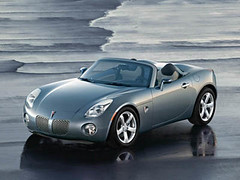Before launching into my thoughts on this topic, let me recount an anecdote that a friend narrated recently (from her school days in India). So we have all grown up with the dual events of flag hoisting and singing of the national anthem during Independence and Republic days in India. Every year, on the 26th of January and the 15th of August most school grounds around the country and filled with kids, teachers, parents, local dignitaries and so on for the Indian tricolor being hoisted followed by a loud rending of “Jana Gana Mana”. So, this one time (in my friend’s school), one of the students refused to sing the national anthem. Turns out that he was a Muslim and according to his faith, one should not sing praises of anything other than the supreme being. So he respectfully declined to participate. From what I heard, he was vilified by his schoolmates and teachers for a long time for being “unpatriotic”.
Let’s pause a little to think about the above anecdote. I might be missing some details because I’m repeating it from someone’s narrative of their memory of the incident. But that is not the point. Nor is it the point of whether boy was correct in his interpretation (or implementation) of his faith (not being a Muslim or a scholar of the faith I cannot honestly comment on that part). Now, let’s put this at the back of our minds and proceed for a bit (don’t worry, I’ll come back to it later).
Consider the following questions:
- What if one loves the nation but disagrees with its policies?
- What if one doesn’t like the overt professions of love for these symbols (anthem, flag, etc.) but still has respect and love for the country?
- What if one genuinely hates his/her own country due to its policies, or treatment that has been meted out to the individual/community?
Patriotism then, in my opinion, is not about the overt show of love and affection for such symbols (or even abstract entities). It is not about tormenting those that voice their opinions. Patriotism is about thinking what is good for the society/country as a whole and working towards those goals. This might foment short term discord because what is “good” may not be obvious in the short term and could even include the process of disagreeing with the policies/actions of the nation (or governments). It could involve putting unpleasant, yet important, topics into the public domain. It could be raising awareness of problems. It could involve publicly condemning those that threaten our freedoms and points of view (not just of the majority, but the minority as well). It could involve service of any sort. It could mean an understanding of our responsibilities and participating in the democratic processes. Patriotism could mean all of these and a lot many more things. But it does not imply the suppression of those that we disagree with, no matter how insignificant the argument or the group.
I often hear comments like, “the country should come first” or “this is how the terrorists get in” and so on when I profess that blind love for the symbols of patriotism is not part of my beliefs. These vacuous arguments just add to the collective noise of public debate and are used to target those that disagree with the majority opinions. It might be better to think about why that person disagrees with you in the first place.
Now, consider question (3) that I mentioned above. What if an individual (or group) hates the country that they’re born into? There could be many social, political and economic reasons for this and I won’t get into any of them here, but what is such an individual (group) supposed to do? The silly solution of “get out of the country” is not a feasible one. That’s just a churlish response. Now if they refuse to honor the flag or the national anthem or the policies of the government, is it fair to call them “unpatriotic”? Or is time better spent by trying to figure out the underlying problem(s) and perhaps moving in the direction of positive dialogue and (hopefully) solutions?
Now let me ask you this question: was the boy in the earlier anecdote unpatriotic because he refused to sing the national anthem, or was he just expressing his freedom of choice? At the end of the day, which one do we cherish more? Loud professions of allegiance to “symbols” that can be better termed as “jingoism” or the ability to inculcate the freedoms of speech, choice and expression in society?

![2968978540_b3a8f207bc[1].jpg_v=0 by you.](http://farm4.static.flickr.com/3407/3217369554_7b2d180ff2.jpg?v=0) Well, it seems like one western filmmaker after another is out to “showcase” India to the rest of the world. First there was John Jeffcoat with his pathetic attempt at showing the software outsourcing industry in India with “
Well, it seems like one western filmmaker after another is out to “showcase” India to the rest of the world. First there was John Jeffcoat with his pathetic attempt at showing the software outsourcing industry in India with “
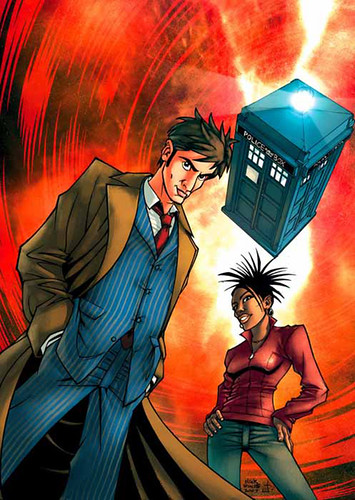 With the success of the BBC television series,
With the success of the BBC television series,  "
"


logo.jpg)
 Matthias Wolf's first effort at a Graphic novel titled "Unbeatable" starts off really well. It shows a young man in pain, waking up in a padded cell with no memories of what has transpired. Before he realizes it, he is launched into dream after dream where all he does is fight the most famous warriors in history with a predictable outcome -- his death at their hands.
Matthias Wolf's first effort at a Graphic novel titled "Unbeatable" starts off really well. It shows a young man in pain, waking up in a padded cell with no memories of what has transpired. Before he realizes it, he is launched into dream after dream where all he does is fight the most famous warriors in history with a predictable outcome -- his death at their hands. fury and is then immediately paid a visit by a mysterious person whom he recognizes, but our protagonist has never seen before. A "creature" is helped in his escape from a highly secure facility who then rampages across the countryside and finds our hero's girlfriend as a victim after he has been knocked unconscious. To top it all, he wakes up in a padded cell with no memories and gruesome battles and deaths to follow.
fury and is then immediately paid a visit by a mysterious person whom he recognizes, but our protagonist has never seen before. A "creature" is helped in his escape from a highly secure facility who then rampages across the countryside and finds our hero's girlfriend as a victim after he has been knocked unconscious. To top it all, he wakes up in a padded cell with no memories and gruesome battles and deaths to follow.

 Well, guess what - eighteen years later, their progeny answer the "call" and come out on one side or the other. Or do they? What if they don't want to take the roles chosen for them by their powerful fathers? What if they are attracted to each other?
Well, guess what - eighteen years later, their progeny answer the "call" and come out on one side or the other. Or do they? What if they don't want to take the roles chosen for them by their powerful fathers? What if they are attracted to each other? everything in this first (and yet complete) book in the "Art Trilogy".
everything in this first (and yet complete) book in the "Art Trilogy". 
 These questions hit home; uncomfortably so in fact in this book. When it is in the stark black and white that is the
These questions hit home; uncomfortably so in fact in this book. When it is in the stark black and white that is the  They both take pot shots are each other (well, at least of late I've seen Maher do that to O'Reilly and I'm sure the other Bill can never resist a brawl). I mean think about it - they're both preaching to the choir, and increasing the division between their respective audiences. During a time that bipartisanship is supposedly at its height, what are
They both take pot shots are each other (well, at least of late I've seen Maher do that to O'Reilly and I'm sure the other Bill can never resist a brawl). I mean think about it - they're both preaching to the choir, and increasing the division between their respective audiences. During a time that bipartisanship is supposedly at its height, what are  they doing but fanning the flames? And they each blame the other side for doing the exact same thing that they themselves do. While O'Reilly claims that the media is left-leaning and they're baby-murderers and terrorist-supporters, Maher claims that O'Reilly and his kind are right-wingers who lust for oil and are...yup, you got that right...baby-murderers and terrorist-supporters!
they doing but fanning the flames? And they each blame the other side for doing the exact same thing that they themselves do. While O'Reilly claims that the media is left-leaning and they're baby-murderers and terrorist-supporters, Maher claims that O'Reilly and his kind are right-wingers who lust for oil and are...yup, you got that right...baby-murderers and terrorist-supporters!

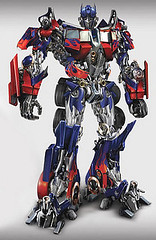

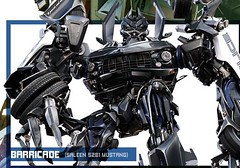




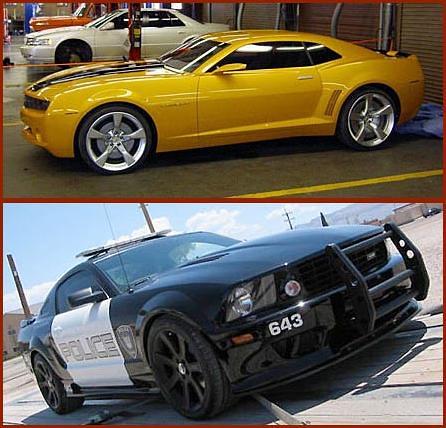 product placement - from the Panasonic SD card to all of the GM vehicles. Phew! It was in-your-face and hard to ignore. I'm not against product placement if it is done in style. Hey, they need money to make the movies and if companies will shell out money so that they get a couple of seconds of showtime, then let that be the case. But there must be some limits -- in once scene, Rachel Taylor's character removes the SD card from a computer and holds it for a second while showing it to the camera instead of doing whatever she intended to do with it. Oh, then there was the over-abundance of GM vehicles. One would think that the only
product placement - from the Panasonic SD card to all of the GM vehicles. Phew! It was in-your-face and hard to ignore. I'm not against product placement if it is done in style. Hey, they need money to make the movies and if companies will shell out money so that they get a couple of seconds of showtime, then let that be the case. But there must be some limits -- in once scene, Rachel Taylor's character removes the SD card from a computer and holds it for a second while showing it to the camera instead of doing whatever she intended to do with it. Oh, then there was the over-abundance of GM vehicles. One would think that the only 